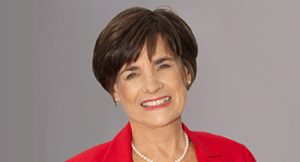What is a Last Will and Testament and Why Do You Need One?

by Judith D. Grimaldi, Esq. CELA, MSW
A Last Will and Testament is your personal instruction manual about what is to happen to you, your remains and your possessions after you die. A Will can be the final gift you give your family and loved ones by creating order and harmony about your final wishes. Many people say, “I don’t need a Will. I’ll be gone; let my heirs decide.”
What happens when there is no Will? Will the state in which you live provide a testamentary plan for your estate? The answer is yes. The state has written a Will for you. It is efficient but it is not personal. New York law will handle estates with no Wills; the process is called “passing by intestacy,” which translates to “without a Will.” New York’s intestacy plan follows strict bloodlines and your family tree:
- If you are married with children, the state says half of your estate goes to your spouse and the remainder is divided among your children;
- If you are single with children, all would go outright to your children and if not to them, then your grandchildren;
- If you are single without children, then your estate goes back to your parents, and if they are deceased, to your brothers and sisters; if you do not have any siblings, then your estate will go to your grandparents, and then to maternal and paternal aunt(s) and uncle(s) or their children. That is how an elderly aunt or distant cousin can be in the inheritance scheme.
It can be complicated and a Will that you create and execute can outline a plan that suits your wishes and avoids this formulaic state law governed outcome.

Some people mistakenly believe that when you don’t have a Will, then all your property goes to the state government. This is not accurate. The state will not receive your estate. That is the good news, but your estate will be distributed according to your family tree, as described above, and your aging aunt or distant cousin may receive a share, even if you might not want to include them. This happens if your immediate family members have died before you or you have no immediate family relations still alive. Intestacy does not include: non-family members, charities, special people or your specific requests, as they are not related to you or are not part of your family tree; thus, they do not have a legal claim on your estate. A well-drafted Will can fix this unwanted outcome for your estate and specifically, include whoever or whatever you wish.
A Will can also be a source of family harmony.
It lets your family and relatives know just what you want to happen, and it speaks when you no longer can. A Will can also provide tax planning to minimize estate tax. It can be used to protect the inheritance of a disabled beneficiary, who may be on public benefits and could become ineligible for needed services, or an heir who has financial or family difficulties, such as creditor problems or an acrimonious divorce. These issues can be handled by directing that the inheritances of these individuals be placed into a Trust for that individual’s benefit, instead of directly in their name, creating the above problems. A Trust inside a Will only activates at the death of the testator of the Will and can be used to address many inheritance cautions and issues.
Another important benefit is a Will can address the care and support of minor children or vulnerable individuals. Wills for individuals with minor children in their care can specifically name Guardians to assume the parental role if the parent should pass before their child reaches legal age. The Will could also create support Trusts for the children, setting out directions and appointing a Trustee to handle the financial management of the child’s inheritance. In New York, the legal age is 18 but many parents find this age too young to give the dependent full control of their inheritance and elect to extend it until they have finished their schooling and college, which is often age 25 or later. Thus, the Trust created for the minor child can continue past the legal age to the age of maturity the parent selects, most commonly 25 or 30 years of age.
A final benefit of doing a Will, instead of leaving it to chance, is you can select the person who will be the Executor of your Estate or the Trustee of any Trusts you set up under the Will. This should be a person who shares your values, is trustworthy and has integrity. Most of all, the Executor must not be turned off by paperwork and details. Being an Executor is an honor in that it shows regard and confidence in the person you select – but is not a trophy of a power position. It is a responsibility to the memory of the deceased and to the good of all the Estate beneficiaries.
The Executor is called a fiduciary, which means one must be faithful to both the living and the deceased and to be fair and honorable. The Executor’s duties are: to collect and manage all the probate assets in the name of the decedent, in which he or she did not name beneficiaries; to pay all debts and claims against the decedent or the decedent’s Estate, including final tax returns from the holdings of the Estate; and finally, to distribute the cash, investments, real estate, personal property and net funds to the heirs, as described in the Will.
An Executor is authorized by state law to receive a commission, generally 5% of the value of the Estate assets under the Executor’s control. This often does not include assets which pass directly outside the Will, like joint accounts, retirement accounts, life insurance policies, which pass by contractual beneficiary designation forms directly to the named individuals or charities, etc. Executor commissions acknowledge that this position represents work and services, and as such, the commissions received are income taxable as earnings; therefore, many Executors waive commissions.
Wills can be as simple or as complex as you are, but the most important thing is that you create and sign a Will. National statistics report that 50% of Americans do not have a Last Will and Testament. Don’t be part of that statistic! See an estate planning attorney to develop an estate plan for you and your family. As an added bonus, you can make a specific bequest to Calvary Hospital (naming Calvary Fund, Inc. as the beneficiary in your Will). At your passing, you will help to continue their valuable work with your support.
Judith D. Grimaldi is a partner in the pioneering elder law firm Grimaldi & Yeung LLP.
A former social worker, Ms. Grimaldi has practiced law for more than 20 years, representing the rights of the elderly and disabled.
Categories
Archives
- June 2025
- May 2025
- April 2025
- March 2025
- February 2025
- October 2024
- August 2024
- July 2024
- May 2024
- April 2024
- March 2024
- February 2024
- December 2023
- November 2023
- October 2023
- August 2023
- July 2023
- June 2023
- May 2023
- April 2023
- March 2023
- January 2023
- December 2022
- October 2022
- August 2022
- July 2022
- June 2022
- April 2022
- March 2022
- February 2022
- January 2022
- October 2021
- September 2021
- August 2021
- July 2021
- June 2021
- May 2021
- April 2021
- March 2021
- February 2021
- December 2020
- November 2020
- October 2020
- September 2020
- August 2020
- July 2020
- May 2020
- April 2020
- March 2020
- February 2020
- January 2020
- December 2019
- November 2019
- October 2019
- September 2019
- August 2019
- July 2019
- May 2019
- April 2019
- March 2019
- February 2019
- January 2019
- December 2018
- November 2018
- October 2018
- September 2018
- August 2018
- July 2018
- June 2018
- May 2018
- April 2018
- December 2017
- November 2017
- October 2017
- September 2017
- August 2017
- July 2017
- June 2017
- May 2017
- April 2017
- April 2012

